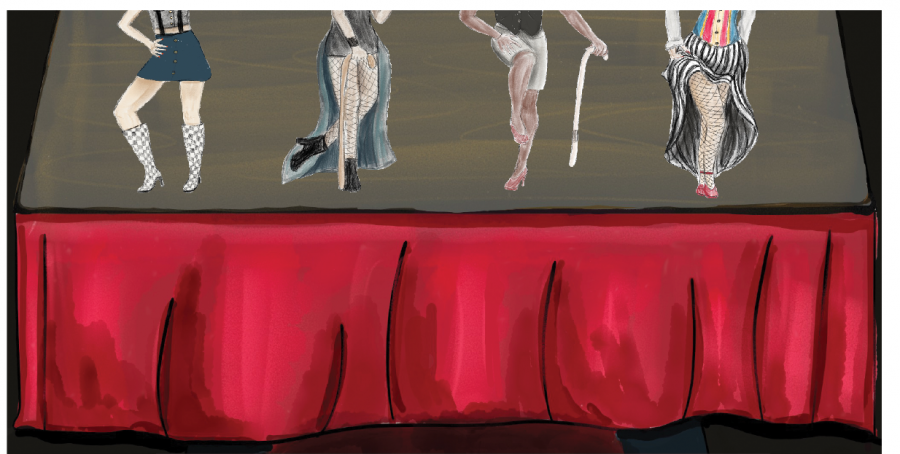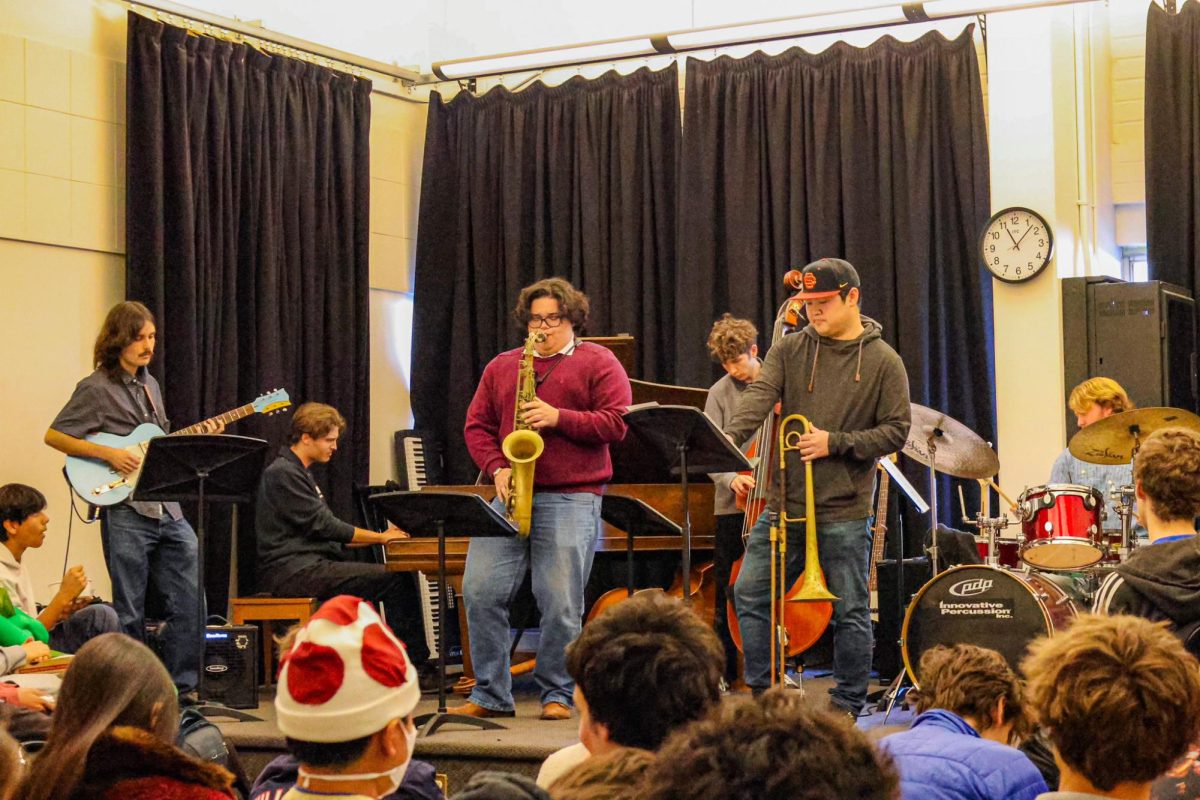When Natalie Kroh ’18 opened her email May 13 and learned “Cabaret” would be the 2017 fall musical, she was less than thrilled. Since the musical takes place in late Weimar Germany, Kroh was initially concerned about its intense themes. Ultimately, after reflecting on the current political climate, she said she came to a different consensus.
“If any show can leave you thinking afterwards and asking questions, it’s this one,” Kroh said.
Performing arts teacher Rees Pugh said current events, especially those having to do with bigotry, informed the choice to put on “Cabaret” as the fall musical. Though the musical was chosen before the recent protests in Charlottesville, Pugh said the protests make the musical and the questions it raises all the more relevant.
“[‘Cabaret’] forces an audience to ask itself, ‘What would I do if this were happening around me? Is it enough to watch and comment and criticize, or does it require activism?’” Pugh said. “The things that were parallel to the story and the present day became less a parallel and more of a direct connection because neo-Nazis themselves came to a protest and out of the woodwork.”
Pugh also said he doesn’t want audiences watching the Harvard-Westlake production of “Cabaret” to walk away thinking it had a black-and-white message of how to respond to political tumult, but instead begin a process of self-reflection.
“We’re not necessarily trying to prescribe action,” Pugh said. “What the show does describe is the consequences of being a bystander, the consequences of being an enabler, and the consequences of being trapped as a victim in all of that.”
In addition to not treating morality as a black-and-white binary, Pugh said the Harvard-Westlake production of “Cabaret” will also explore the idea of gender as a gray area. Pugh said this is done to avoid the objectification of female characters, especially the ensemble, present in many professional productions of “Cabaret” and instead use the ensemble to portray the gender nonconformity of real Weimar-era cabarets.
“The world of the cabaret was a place where there was much more gender fluidity than anywhere else in the world at that point, and certainly in the world of this show,” Pugh said. “I thought that it would be interesting for us as a community to explore. Throw up in the air gender stereotypes and what we can explore with normalizing the gender spectrum.”
Performing arts teacher Michele Spears said there is a lot of freedom in interpreting the characters in the ensemble and their identities that represent all ends of the gender spectrum.
“I want a room of people, cabaret performers, who have designed themselves, and that design is completely up to them,” Spears said. “That might be ridiculously camp and over the top and crazy and completely androgynous, or they might be very traditional glamour. I want everyone to know that all of that’s on the table.”
Charlotte Weinman ’18, who plans to audition for the musical, said she hopes the play’s portrayal of gender opens up more conversations of gender identity on campus.
“We already have a very vocal social justice scene,” Weinman said. “I think there’s a lack of representation of people who are gender-neutral or genderfluid or nonbinary. I would love to see more conversations about that on campus, and I think that comes from seeing so many androgynous characters in this play.”
Spears said the cabaret performers’ interpretation of gender would itself form a spectrum, with the gender-non-conforming cabaret at one end and the outside world of Nazi Germany at the other.
“These clubs and these performers were sort of counter-cultural, and, strangely enough, as you’ll see in the play, the mainstream people would still visit these clubs to sort of dip their toe in the extreme and the exotic, and then criticize them out in the daylight,” Spears said. “We want to make that point, too, and we want to, strangely, celebrate the diversity and the wonderful oddity and the huge spectrum of all of those categories.”
Spears added that exploring all facets of identity serve to paint the cabaret as a place of freedom in a world where that was frowned upon.
“We want this world to sort of be an example of all of the things that categorize us as ‘other,’ whether it’s sexual identity or orientation, whether it’s religious identity or belief, whether it’s politics,” Spears said. “That’s all counterpoint to something like the Nazi regime, where they wanted to wipe out anything that was ‘other.’”
Kroh said what she hopes the audience takes away from watching “Cabaret” is a newfound sense of compassion for those around them and their humanity.
“What I love so much about art and musical theater is that I feel like it reaches a lot of people from a lot of different backgrounds,” Kroh said. “My hope is that [‘Cabaret’] will inspire some empathy from people about what it is to be a human being, and I hope that creates more unity.”





























